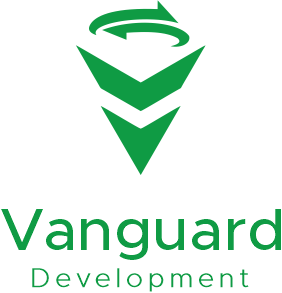Leveraging Technology: How Digital Tools Enhance Project Financing Efficiency
In today’s fast-paced real estate and construction sectors, project financing has become more intricate, requiring greater precision, transparency, and efficiency. The advent of digital tools has significantly transformed this landscape, enabling developers and financiers to streamline processes, make informed decisions, and mitigate risk. From AI-powered forecasting models to blockchain-based smart contracts, technology has made it possible to optimize every step of project financing, reducing bottlenecks and enhancing collaboration across teams.
In this article, we’ll dive into how technology is revolutionizing project financing, exploring tools that enhance due diligence, optimize cash flow management, and improve decision-making for all stakeholders involved.
1. Enhanced Due Diligence through Data Analytics
Before any financing is secured, due diligence ensures the project’s feasibility and assesses potential risks. Historically, gathering and verifying data has been a labor-intensive process, but advanced analytics have changed the game, providing in-depth insights quickly and accurately.
Key Technological Tools:
- Data Aggregation Platforms: These tools pull together data from multiple sources, including historical sales, market trends, zoning laws, and demographic information. They provide a comprehensive view of a project’s viability and potential returns.
- AI-Powered Predictive Analytics: AI models analyze past project performance and economic conditions to project financial outcomes with greater accuracy, enabling developers to present stronger cases to lenders.
- Property and Risk Assessment Software: Leveraging AI, these platforms assess project risks by analyzing environmental, legal, and financial factors, ensuring that every aspect of the project is vetted before any commitments are made.
Benefits:
- Improved Transparency: All relevant data is available in one place, making it easy for financiers to verify the accuracy of information.
- Risk Mitigation: By identifying potential red flags early, developers and investors can make adjustments or alternative financing decisions, saving time and resources in the long run.
2. Streamlining the Funding Process with Blockchain
Blockchain technology has emerged as a game-changer in project financing, providing a transparent, immutable ledger for all transactions and documents involved in the process. Blockchain’s decentralized structure eliminates the need for intermediaries, speeding up the financing timeline and reducing costs.
Key Technological Tools:
- Smart Contracts: These self-executing contracts facilitate, verify, and enforce the negotiation and performance of financial agreements without requiring third parties. Smart contracts release funds based on predefined milestones, ensuring transparency and accountability.
- Tokenization of Assets: Real estate assets can be tokenized, allowing developers to raise capital from a larger pool of investors through fractional ownership. This approach makes financing accessible to more investors, democratizing the process.
- Blockchain-Based Document Management: Secure and immutable document storage on blockchain enables stakeholders to access verified information at any time, reducing disputes and enhancing trust.
Benefits:
- Reduced Transaction Times: Blockchain eliminates the need for manual verification, enabling quicker approval of funds.
- Increased Security: Blockchain’s encrypted transactions enhance security, reducing the risk of fraud or data breaches.
3. Optimizing Cash Flow Management with Financial Planning Software
Cash flow is the lifeblood of any project. Efficient cash flow management helps developers avoid delays and maintain project momentum. Digital financial planning tools allow developers and financiers to manage budgets, track expenses, and forecast cash flow with precision.
Key Technological Tools:
- Real-Time Budget Tracking Tools: These platforms provide live updates on expenses, ensuring developers remain within budget. Integrations with accounting software also make tracking and auditing more efficient.
- Cash Flow Forecasting Software: AI-based forecasting tools provide accurate cash flow projections, allowing developers to anticipate funding needs and schedule payments accordingly.
- Automated Payment Systems: Automated platforms streamline payment processes, ensuring that all contractors and vendors are paid promptly, keeping the project on track.
Benefits:
- Improved Financial Control: Real-time data allows developers to make immediate adjustments, preventing budget overruns and costly delays.
- Better Planning: Predictive analytics give a clear picture of future cash flow needs, aiding in proactive financial management and lender communication.
4. Facilitating Investor Relations with Digital Portals
Effective communication with investors and stakeholders is essential to maintain trust and transparency. Digital investor portals centralize project data, allowing investors to view updates, financial reports, and projections in real time, all while reducing the need for manual updates or reports.
Key Technological Tools:
- Investor Portals: These platforms allow developers to share project progress, performance metrics, and financial updates in a secure environment accessible from any device.
- Automated Reporting: Financial reporting software can generate real-time reports, ensuring that investors have the most recent information on project performance.
- Virtual Communication Tools: Video conferencing and virtual collaboration platforms facilitate regular meetings, bridging the gap between developers and investors, even if geographically distant.
Benefits:
- Enhanced Investor Trust: Transparency builds trust, helping developers maintain strong relationships with investors.
- Efficient Communication: Automated reporting and centralized data reduce the time spent on investor updates, allowing developers to focus on the project itself.
5. Accelerating Decision-Making with AI and Machine Learning
AI and machine learning bring a data-driven approach to project financing, enabling developers and financiers to make quicker and more informed decisions. By analyzing historical data and market trends, AI can predict potential challenges and suggest optimal strategies, keeping projects on a successful trajectory.
Key Technological Tools:
- AI-Powered Financial Modeling: AI models simulate various financial scenarios, helping developers understand how different funding strategies impact the project.
- Machine Learning Algorithms for Market Analysis: These algorithms analyze market trends and competitive landscapes, providing insights into optimal project positioning and pricing strategies.
- Automated Decision-Making Tools: These tools streamline approvals and fund disbursement, reducing wait times and improving overall efficiency.
Benefits:
- Informed Decision-Making: AI-driven insights allow developers and investors to make choices based on data, minimizing speculation and improving project outcomes.
- Increased Flexibility: With faster analysis, developers can adapt financing structures or project timelines in response to changing conditions.


Leave A Comment